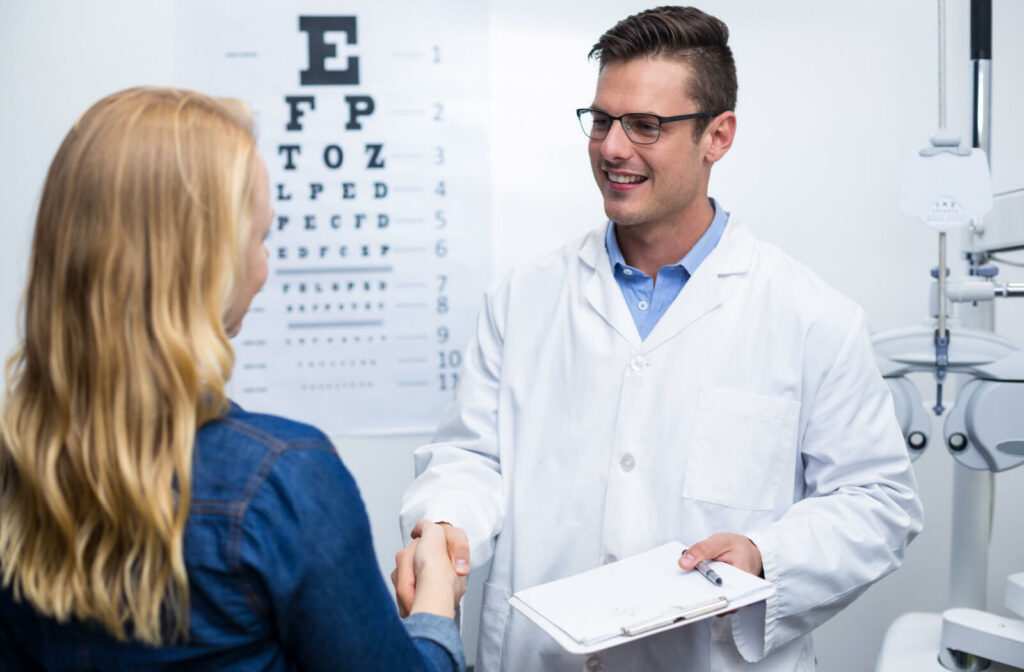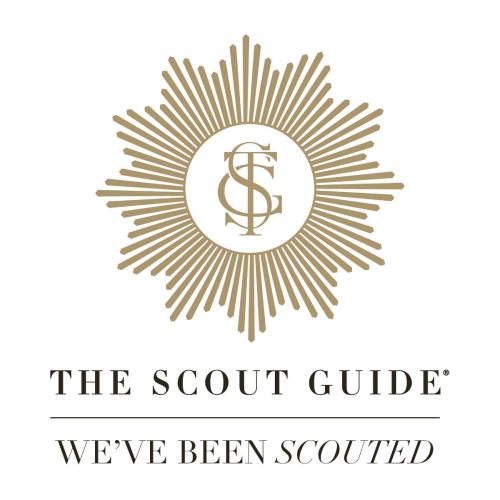Many of us are accustomed to attending a comprehensive eye exam every year or every 2 years. An eye exam is a comprehensive evaluation of your vision and eye health and, in most cases, is a quick and straightforward procedure. However, occasionally your optometrist may need to dilate your pupils for a clearer view, which can have potential side effects that make it difficult to drive.
You can drive after a regular eye exam, but a dilated eye exam can impact your ability to see and you’ll likely need someone to drive you home afterwards. Your optometrist should let you know before your exam if they’re planning on dilating your eyes, so you can plan accordingly. Time to ask a good friend or family member for a favor and enjoy the ride!
The Importance of Regular Eye Exams
Your eyes are one of the most important assets you have, and yet, we often overlook them when it comes to healthcare. It’s easy to forget about regular eye exams when our vision seems to be in good condition. But eye exams are about more than updating glasses or contact lens prescriptions. They’re crucial for maintaining healthy vision and identifying underlying eye and health conditions.
Regular eye exams help detect eye problems in their early stages. Many eye diseases, such as glaucoma, often show few early symptoms, so detecting them early through regular eye exams is crucial. Early detection and treatment can prevent further progression and may even save your sight.
Additionally, eye exams can detect more than just eye problems. They can also find signs of underlying health conditions such as diabetes and high blood pressure.
The recommended exam schedule is:
- 6–12 months old: 1 exam
- Ages 3–5: 1 exam
- Ages 6–17: 1 exam annually
- Ages 18–64: 1 exam at least every 2 years
- Ages 65+: 1 exam annually
This is only a general schedule, of course. People at risk of eye conditions should follow their optometrist’s suggestion and visit more frequently.
Why Does an Optometrist Dilate Your Eyes?
A dilated eye exam is a particular type of examination involving special eye drops that dilate or widen your pupils. This allows more light into your eyes, which can help your optometrist examine the back of your eye.
This examination can detect if there are any abnormalities in your eyes, including:
- Glaucoma
- Cataracts
- Macular degeneration
- Diabetic retinopathy
Additionally, the back of the eye provides a clear view of blood vessels that can be an excellent indicator of your overall health. By examining the blood vessels, your optometrist can identify conditions such as high blood pressure, high cholesterol, and diabetes.
Eye doctors usually recommend dilated eye exams for individuals at risk of developing eye conditions or those with a history of eye diseases in their family.
What to Expect During a Dilated Eye Exam
A dilated eye exam typically begins like any other type of eye exam. Your optometrist will likely review your medical history to better understand what you need. While the exact shape of an exam can be different from person to person, tests may include:
- A visual acuity test where your optometrist may ask you to read letters or symbols off a chart
- A visual field test to check your peripheral vision
- An eye muscle function test to examine how well the muscles around your eyeballs work together
- A pupil response test to examine how your eye responds to light
- A tonometry test to measure pressure inside the eye, usually using a gentle plunger or a quick puff of air. Increased eye pressure is usually one of the first signs of glaucoma.
After this, your eye doctor may put special eye drops into your eyes to dilate your pupils. It can take 20–30 minutes for your eyes to respond, but eventually, your pupil should widen, allowing a clearer view of your retina and optic nerve. Your optometrist can then perform a series of tests to assess your inner eye health.
What Happens After a Dilated Eye Exam?
The effects of those dilating eye drops may last 4–6 hours, meaning doctors don’t advise driving or operating heavy machinery immediately after dilation. While your pupils are dilated, you may experience:
- Light sensitivity
- Blurriness
- Difficulty focusing on nearby objects
- A momentary stinging, though this should fade soon after the drops are put in.
Imagine how it feels to turn the lights on after being in a dark room for hours, that’s what having dilated pupils can feel like. If possible, wear dark glasses and arrange for someone to drive you home after the exam.

Book Your Next Eye Exam
If you’re not due for a dilated eye exam, the likelihood of side effects impacting your ability to drive is low. An eye exam, in general, is unlikely to cause significant discomfort or impair your driving abilities.
But it’s essential to be aware of any potential side effects that can impact your ability to drive safely. If you know you’re due for a dilated eye exam, arrange for someone to drive you home from the appointment. Allow the effects of the drops to subside before getting behind the wheel. And, if you feel any side effects following your eye exam, be extra cautious when driving.
Our team at Pinnacle Eyecare will let you know if you should expect dilation at your eye exam, so you can plan ahead. We want you to appreciate your time with us—because we appreciate you taking the time to protect your vision! Take the step toward healthy vision and book your eye exam today!





